The conversation around THC (tetrahydrocannabinol), the psychoactive component in cannabis, is as prevalent as ever, sparking diverse opinions on its effects.
Among these, the debate on whether THC aids or hampers sleep is particularly heated.
Contents
THC as a Sleep Aid
Scientific interest in THC’s potential to enhance sleep has grown, especially for those grappling with specific medical conditions. Conditions like PTSD, chronic pain, and multiple sclerosis can turn the simple act of falling asleep into a nightly struggle.
Some studies suggest that THC may ease this struggle by increasing the levels of adenosine, a chemical known to promote sleep and reduce wakefulness. However, it’s essential to acknowledge the complexity of the human body and the fact that THC might not have the same sleep-inducing effect on everyone.
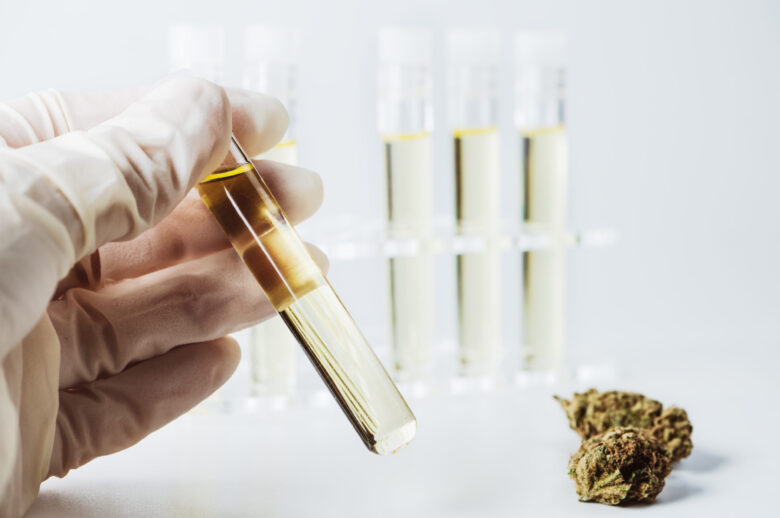
Source: elevate-holistics.com
Personal Accounts and Anecdotal Evidence
Dive into any online forum discussing cannabis, and you’ll likely find stories from individuals who swear by THC’s sleep-promoting benefits. Surveys and studies have quantified this, showing a significant percentage of cannabis users—both occasional and regular—turn to the herb as a nighttime ritual to hasten their journey to dreamland.
While these accounts provide valuable insights, they also highlight the subjective nature of THC’s effects, reminding us that what works for one person might not for another.
Popular Consumption Methods
The consumption of THC for both medicinal and recreational purposes can be approached through various methods, each offering distinct experiences and effects. The choice of consumption method can significantly influence the onset, intensity, and duration of the impact, including its efficacy as a sleep aid. Below are some of the most popular methods of consuming THC:
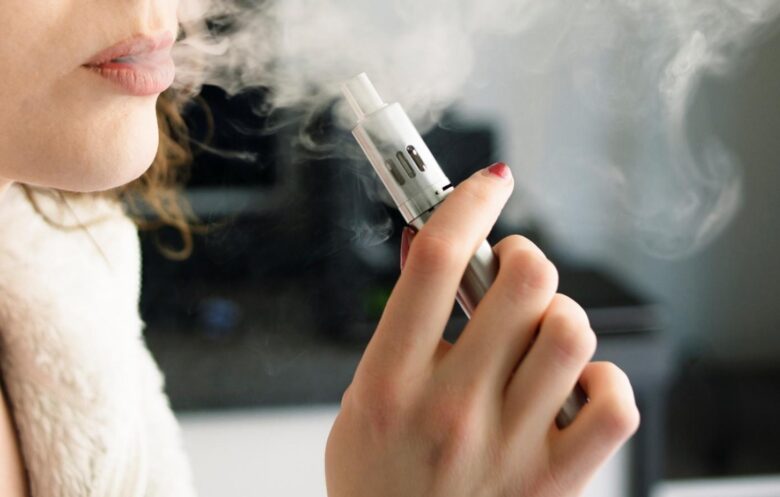
Source: medium.com
Smoking
Smoking is one of the most traditional ways of consuming cannabis, which includes THC. It involves inhaling the smoke from burning cannabis flowers or concentrates. The effects of THC come on almost immediately, making it a preferred method for those seeking quick relief from insomnia or sleep disturbances. However, the health risks associated with smoking and the irritation it can cause to the respiratory system are notable drawbacks.
Vaping
Vaping has emerged as a popular alternative to smoking, offering a less harmful way to inhale THC. By heating cannabis flowers or concentrates just enough to vaporize the active compounds without burning the plant material, vaping reduces the inhalation of harmful combustion products. It provides a cleaner, smoother experience with a rapid onset.
Edibles
THC-infused edibles, such as gummies, chocolates, and beverages, offer a smoke-free method of consumption. The effects of edibles take longer to manifest, usually between 30 minutes to 2 hours, but tend to last longer and be more intense than those experienced through inhalation. This delayed but prolonged effect makes edibles particularly suitable for those seeking sustained relief through the night.
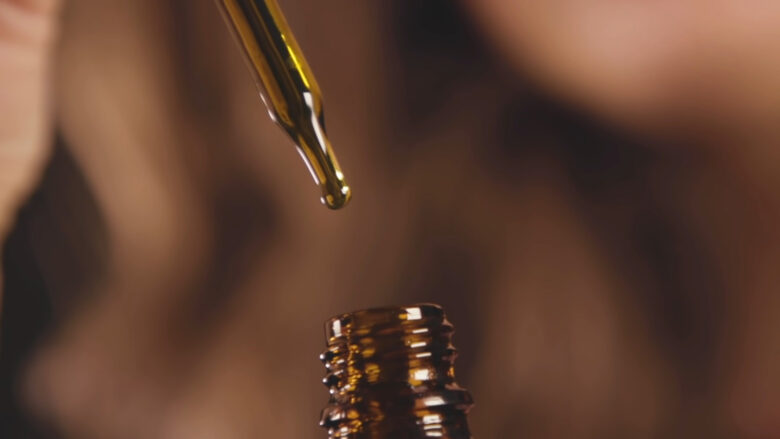
Source: medium.com
Tinctures
Tinctures are liquid extracts of cannabis that are typically administered sublingually (under the tongue). This method allows for quick absorption into the bloodstream, offering a fast onset of effects while avoiding the respiratory risks associated with smoking and vaping. Tinctures provide precise dosing and a discreet way to consume THC, making them ideal for medicinal users.
Topicals
While not typically used for sleep enhancement due to their localized effect, THC-infused topicals, such as creams, balms, and lotions, are applied directly to the skin to relieve pain or inflammation. They do not produce psychoactive effects, making them a preferred choice for those seeking the therapeutic benefits of THC without the high.
Potential Risks and Drawbacks
The relationship between THC and sleep isn’t purely beneficial; it may have some adverse effects for some people.
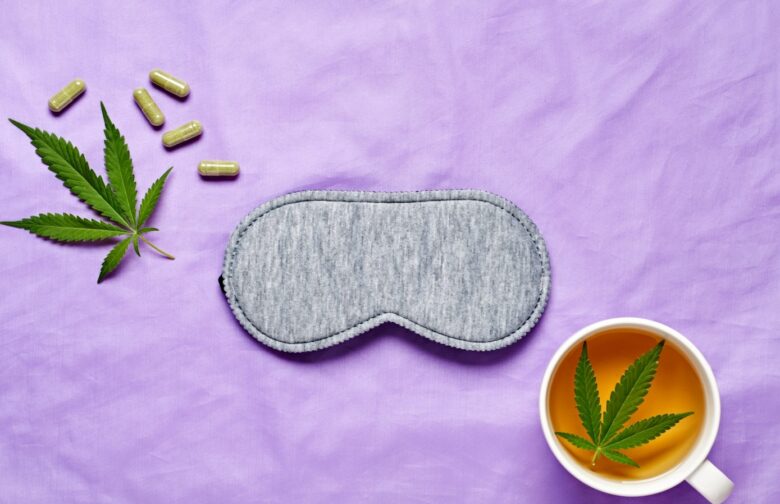
Source: openaccessgovernment.org
Decreased REM Sleep
High doses of THC, particularly over extended periods, might lead to a decrease in REM (Rapid Eye Movement) sleep, the stage associated with vivid dreams. Since REM sleep is believed to play a crucial role in learning, memory, and emotional processing, its reduction could have far-reaching implications for cognitive and emotional health. This potential side effect of THC use introduces a critical need for balance and moderation.
Long-Term Use and Dependency
The possibility of developing a dependency on THC for sleep is a concern that cannot be overlooked. Some individuals might find that over time, they require higher doses of THC to achieve the same sleep-inducing effect, a phenomenon known as tolerance. This escalation can lead to a cycle of increased use and dependency, potentially making it harder to achieve natural sleep without the aid of THC.
The Complexity of THC’s Effects
The interaction between THC and sleep is not straightforward. It’s influenced by a myriad of factors, including individual biology, THC dosage, and even the method of consumption.
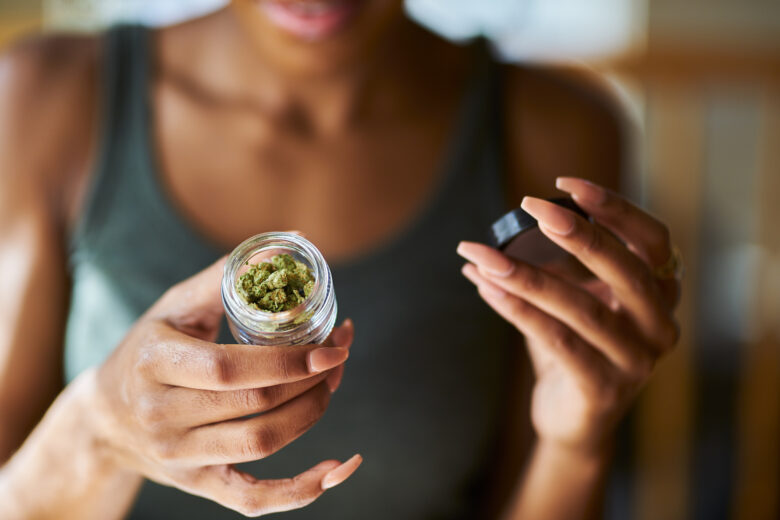
Source: sleepfoundation.org
Individual Differences and Dosage
Determining the optimal THC dosage for sleep is complex and highly individualized. Research suggests that low to moderate doses may improve sleep for some individuals, while higher doses can lead to disturbances in sleep architecture, such as decreased REM sleep.
Studies using doses ranging from 5 to 15 mg of THC for sleep illustrate this variability; some participants reported significant improvements in sleep quality at lower doses, while others experienced optimal results at slightly higher doses.
Genetic Factors
Genetic predispositions can play a significant role in determining how an individual responds to THC. For instance, variations in the CNR1 gene, which codes for the CB1 receptor that THC binds to, can affect an individual’s sensitivity to THC. Some people might find a low dose compelling due to a genetic predisposition that makes their CB1 receptors more readily bind with THC, while others may require higher doses to achieve the same effect.
Tolerance Levels
Tolerance to THC is another critical factor affecting its efficacy as a sleep aid. Regular users may find that they require progressively higher doses to achieve the same sedative effects, which can lead to reduced effectiveness over time. This tolerance buildup can also affect how long THC improves sleep patterns before dosage adjustments are necessary.
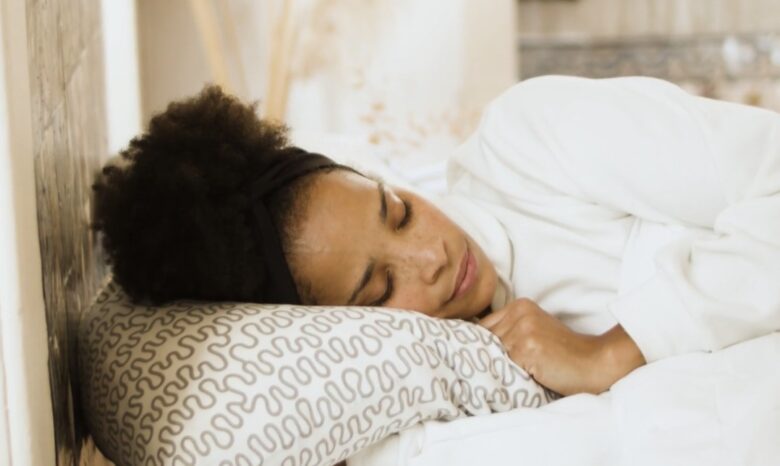
Source: canva.com
Consumption Methods
The method of THC consumption (smoking, vaping, edibles, etc.) can also impact its effects on sleep. Inhalation methods like smoking and vaping typically lead to faster onset of effects, including drowsiness, but these effects may not last as long throughout the night.
Conversely, edibles take longer to take effect but generally provide longer-lasting sleep benefits. Therefore, the choice of consumption method can influence both the dosage needed and the timing of consumption relative to bedtime.
Health and Psychological Factors
Individual health conditions and psychological state also significantly influence THC’s effects on sleep. Those with chronic pain or anxiety may find THC particularly beneficial for sleep, as it can address underlying conditions that disturb sleep. However, individuals with certain mental health disorders, such as schizophrenia, may experience adverse reactions to THC, including worsened sleep quality.
Strain-Specific Responses
The cannabis plant is a complex organism with hundreds of strains, each boasting its unique profile of cannabinoids and terpenes. Indica is shorter and bushier than Cannabis sativa, and the effects of these strains can vary dramatically, with some (typically indicas) being lauded for their sedative properties. In contrast, others (sativas) might have more energizing effects.
Understanding the nuances of these strains is crucial for anyone looking to cannabis for sleep improvement, emphasizing the need for informed choices.
THC’s relationship with sleep is complex and multifaceted. While some find it beneficial for sleep, others might experience adverse effects, especially with long-term use.
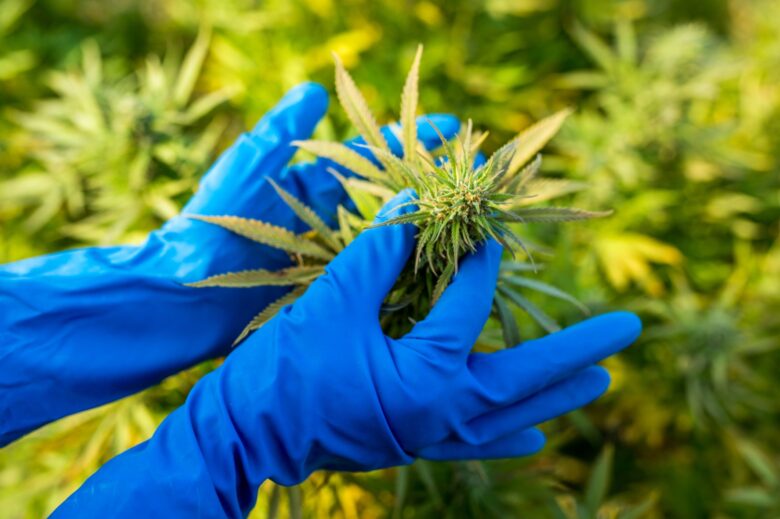
Source: forbes.com
Experiment safely
The overarching theme here is the need for more research to understand THC’s impact on sleep fully. If you’re considering THC as a sleep aid, it’s wise to consult with healthcare professionals and tread cautiously.
After all, a good night’s sleep is invaluable.
